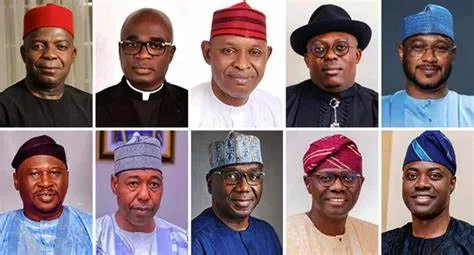
STATES BORROWED $250M FOR WATER PROJECTS. THEY FAILED, DEBT STAYED
Nigerian states borrowed $250 million from the World Bank in 2015 to improve water access, but the projects funded by this loan have failed, leaving more people without reliable access to water, FIJ has gathered.
This assessment was based on research conducted across Ekiti, Bauchi and Rivers states and documented in the “Big Debt, Big Debt” report by Corporate Accountability and Public Participation Africa (CAPPA).
CAPPA, an organisation advocating for social justice, human rights and inclusion in Africa, examined the impact of the Third National Urban Water Sector Reform Programme (NUWSRP3). The report used surveys, interviews and field observations to assess water availability, quality and affordability.
FAILED WATER INFRASTRUCTURE AND ACCESS
Despite significant investments, many communities still struggle to access clean water.
In Ekiti State, entire neighbourhoods remain without public water supply despite modern infrastructure like the Ureje Dam. Even where water meters were installed and residents were required to pay fees, taps remained dry.
READ ALSO: CBN To Refund $22m As $32m Goes Missing From Nigeria’s Water Sector
Similarly, in Bauchi and Rivers states, upgraded dams and water facilities have not ensured consistent access, forcing residents to rely on wells, boreholes and expensive private vendors.
The report also documented how major issues such as power shortages, poor planning, and vandalism have worsened the water crisis.
Nigeria’s unstable electricity supply has made it difficult for water facilities to function; weak coordination between agencies has led to costly mistakes that have exacerbated the inefficiency.
THE FINANCIAL BURDEN
Beyond the failed infrastructure, the financial burden on Nigerians is alarming. The federal government is responsible for repaying the World Bank loan, deducting payments from state allocations.
Already, Nigeria is set to spend 45% of its revenue on debt servicing in 2025. Repaying the loan without appropriate returns only strains the budget.
The loan itself is structured as a long-term, low-interest (concessional) arrangement with a grace period at the start. Repayments were meant to be covered by improved water utility revenues.
The financial strain also extends to citizens. The report stated that residents in Ekiti spend an average of N11,410 monthly on water.
In Bauchi, where public water supply is intermittent, 50% of respondents spend between N500 and N5,000 per month, including N500 to N1,000 paid to the Bauchi State Water Corporation.
In the same state, however, 18% — mostly from the upper middle class — spend between N5,000 and N40,000 on alternative sources such as bottled water or private water tankers.
Summarily, instead of addressing the water cost challenge, the manner of executing the NUWSRP3 has worsened, according to the report.
Essentially, the project has raised costs by encouraging tariff increases to make the water sector commercially viable and less reliant on government funding.
WATER SUPPLY AND QUALITY
In Bauchi, 66% of respondents identified public water as their primary source, yet nearly half still rely on wells, a third on boreholes, and a smaller fraction on local water vendors to fill supply gaps.
In Ekiti, 40% of respondents have never received public water. Another 18% reported access at some point in the past 10 to 50 years, while only 8% had received public water within the last 5 to 10 years. A further 36% indicated access within the past 1 to 5 years, though sporadically.
In Rivers, most residents rely on privately dug boreholes. Of those surveyed, 45% rated their water supply as ‘poor’, describing it as unclean and unsafe for drinking.
Another 40% considered it ‘fair’, but they often depend on underground sources or expensive water treatment chemicals. Meanwhile, 14% claimed their water was very clean, while 1% had no consistent opinion, as their water quality varied depending on the source available at any given time.
In Bauchi, 39% rated their water quality as ‘good’ and 37% as ‘fair’. Another 11% considered their water ‘excellent’, while 13% rated it as ‘poor’. Complaints mainly focused on the water’s smell and appearance, with some reporting that tap water often smelled like chemicals and appeared brown for extended periods.
In Ekiti, where most residents rely on private or communal sources, 39% rated the water as ‘poor’, while 40% deemed it ‘fair’.
REPEATED FAILURES IN WATER PROJECTS
This is not the first time Nigeria has taken loans for water projects that failed to deliver. Earlier phases of the National Urban Water Sector Reform Programme, launched in 2004 and 2005, also fell short of expectations.
The World Bank’s own assessments rated these projects as ‘moderately unsatisfactory’. Yet, lending continued. NUWSRP3 maintained the same model of prioritising commercial viability over actual water access, requiring states to implement cost-recovery measures like prepaid meters and tariffs.
 Premium News
Premium News